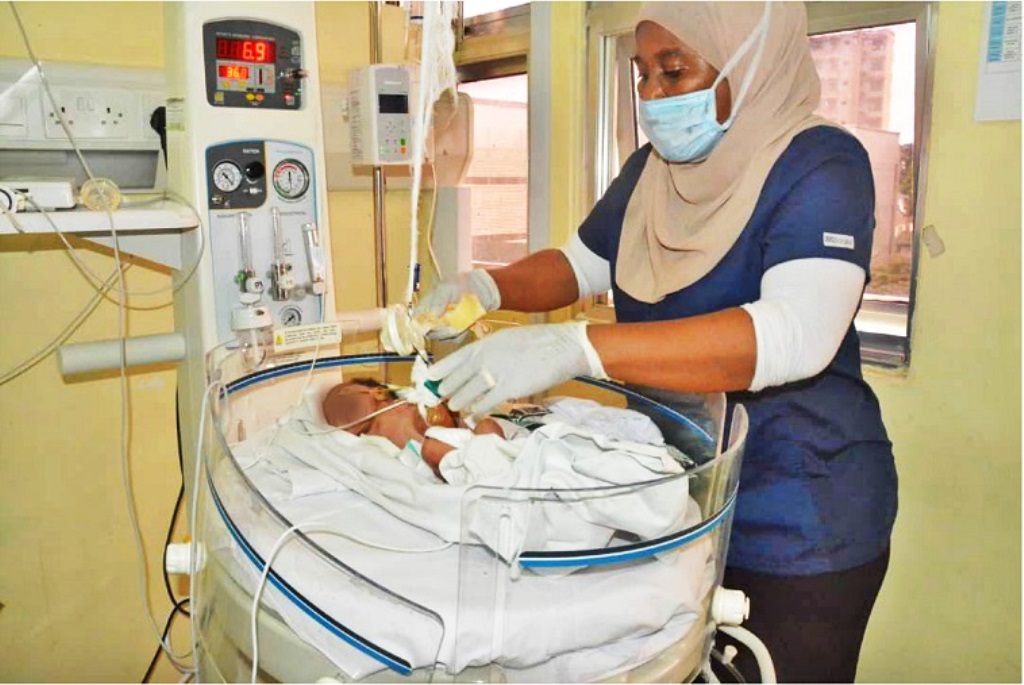AfricaPress-Tanzania: PAEDIATRIC surgeons at Muhimbili National Hospital (MNH) have for the first time saved the lives of two children born with abdominal wall defect (gastroschisis) by using silo bags to treat the condition.
According to the specialists, the new technology does not require a child to either be anaesthetised or undergo a surgical procedure.
MNH Paediatric Unit Surgeon, Dr Zaitun Bokhary, told reporters in Dar es Salaam on Thursday that before the new technology, the mortality rate for children born with the problem was 100 per cent, but with the new procedure, patients could be cured by 100 per cent.
“Before this technology, children born with gastroschisis had to undergo surgery and being inserted with normal bags whose efficiency was very low… since the procedure needed a child to go through various surgical procedures, including being anaesthetised and the time used to restore the intestine, most of them develop various complications and they end up dying,” Dr Bokhary said.
She noted that from now onwards, children born with gastroschisis would be inserted with a special bag while at the hospital and the health personnel would be gently pushing the intestine back into the stomach between three and five days until the intestine was back to its normal position.
Dr Bokhary, however, said to ensure the service was accessible in various parts in the country, MNH had started conducting special training to all zonal hospitals in Dar Salaam on how the health personnel could provide first aid services to children born with gastroschisis before being referred to MNH.
She added that MNH would continue providing training to other health workers in the country to save the lives of children born with the condition.
The ongoing health sector transformation has improved access not only to specialised healthcare, but also to routine medical services.
It has also cut down the number of Tanzanians seeking a similar service overseas while attracting patients from neighbouring countries.
For instance, MNH is currently conducting highly specialised services, including kidney transplant, cochlear implant and interventional radiology and plans are underway to introduce other services such as vitro fertilisation (IVF), liver transplant and bone marrow transplant.
MNH Executive Director, Prof Lawrence Museru, confirmed recently that his institution intended to build a transplant centre at MNH Mloganzila to ensure sustainability of all transplant services.







